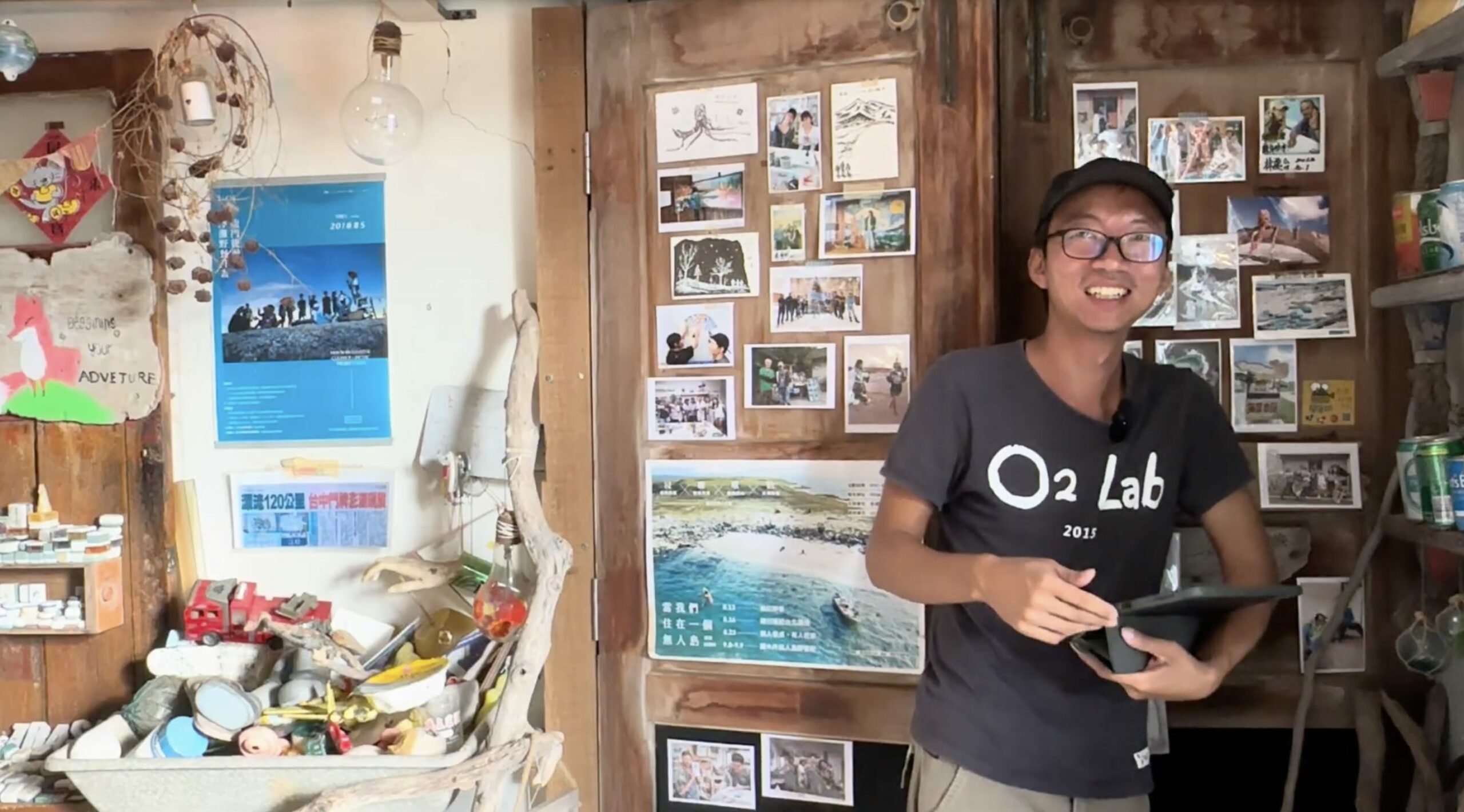
A studio where the sea tells its stories
In the O2 Lab studio, every object tells a story of a journey. On the shelves are drinks and food from different countries, some recognisable, some mysterious. Some of the packaging, carried by the winds and currents, has come from far away.
Among these curiosities is a door plaque from Taichung that arrived in Penghu, carried by a typhoon, rain and the river. On the beaches, you can also find pieces of board games, ‘perhaps fallen from a boat’ or washed up from old landfills attacked by the waves, releasing ‘lots of old things like boxes’.
Works to raise awareness of marine pollution
A striking piece in the collection is a work entitled 2048. The artist was inspired by a scientific observation: if plastic pollution continues to increase, this date could mark a dramatic turning point for marine life.
Designers also create postcards, objects and installations from recycled materials. Fishing nets, sometimes torn by typhoons, are reused.
Transforming waste into creations
In this space, visitors can discover suitcases, ladders, transformed instruments, lamps made from nets, and sculptures of dolphins and rays. Some pieces retain their original colour: ‘It’s not dye.’ The artists are also working on narrative projects, such as the comic strip What the Grandpa Fishing, which collects stories from children in Penghu.
Education through creation
There are many educational activities on offer, including fish drawing workshops, making objects from white plastic covered with sand, and assignments for students to transform these materials into imaginary animals. School projects can even be exhibited alongside the artists’ creations.
The exploration is not limited to waste: shells, catfish and ray eggs, crab traps and ancient objects such as glass balls – used before the plastic era – all find their place in the collection. These discoveries often become the starting point for poetic or scientific stories.
Art in the service of the ocean
The studio also takes care to limit its own pollution: dirty water from painting is collected, filtered and sometimes reused as an artistic material.
Through this approach, O2 Lab combines environmental awareness, creativity and education. The goal is clear: to ensure that every visitor leaves with a desire to look at objects washed up on beaches differently, no longer as waste, but as fragments of stories to be told.
Testimonies from the same panel